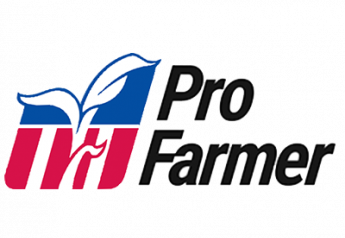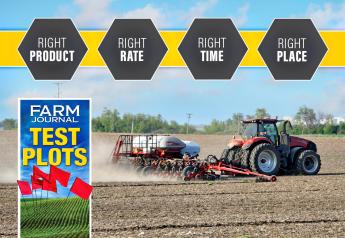Agroecology as a Choice, Not Coercion

By Ted Sheely: Lemoore, California USA
Meet the world’s new farming buzzword: “agroecology.”
I’d try to define it, but “agroecology” is one of those slippery terms whose meaning shifts depending on time, place, and agenda. It connects the words “agriculture” and “ecology” in a way that’s supposed to feel fresh and innovative—but far too often it’s deployed for the purpose of persuading people in the developing world to reject the tools of modern agriculture.
So beware of this buzzword: It has the potential to work like a buzzsaw that rips common sense into sawdust.
You might think that I’d be a strong advocate of “agroecology.” After all, I grow organic pima cotton on 17% of my California farm’s cotton acreage, abiding by strict rules that control how we can plant seeds, enrich the soil, and fight weeds.
This is my choice, and I choose it because there’s a market for this product. The organic cotton on my farm supports an upscale clothing industry of consumers who are willing to pay extra for items that they believe are better than those made with conventional textiles.
I’m not sure they’re right about this, except that I don’t make it my business to question the priorities of consumers. If you want organic cotton, and you’re willing to pay for it, then I’ll grow it for you.
Personally, I do not prefer organic cotton to other kinds of cotton, including the conventional cotton. I also grow this standard type of cotton, which uses GM technology to protect the cotton plant and boll from weeds and pests. It’s safe to cultivate on my farm and it’s safe to wear clothes made from it.
The vast majority of farmers who grow cotton rely on these tools. In the United States, 88 percent of the cotton we plant and harvest benefits from the GM technology, according to the Department of Agriculture. Farmers in other countries have taken up cultivation of GM improved cotton at similar rates.
The reason is simple: This is an excellent crop that produces abundant amounts of cotton. You can spend a lot of money on fashionable clothes, but thanks to GM cotton, clothing is more affordable for everyone, including poor people in the developing and developed world.
Because of GM technology, crop-protection tools, and more, farmers are growing more food and cotton on less land than ever before. This is an incredible boon for humanity as well as the environment. Never before in history has it been easier for us to meet the basic needs of people everywhere. As we continue to take advantage of sound science and develop new technologies, we’re going to improve on what is already a good situation.
Unfortunately, many of the advocates of “agroecology,” threaten this opportunity. They seek to persuade farmers and regulators in the developing world to reject the 21st-century technologies that are essential to food security and economic resilience.
Organic farming may have its virtues, and it may deserve to flourish within the amazing diversity of modern agriculture, but it cannot feed and clothe the world. It’s just not sustainable.
Rwandan farmer Pacifique Nshimiyimana observed “the agroecology movement pushed by Western NGOs operating in Africa” and its hostility to “improved seeds and modern pest management technologies, including gene editing tools.” He understands how this movement’s success would devastate farmers and hurt consumers: “It is wrong to leave Africans at the mercy of organic farming, which is nearly impossible in a tropical climate where locusts, fall armyworm, Tuta absoluta, and other pests ravage crops.”
Let’s remember one of the cruel ironies of agroecology: Its biggest supporters come from the developed world, where people generally don’t have to worry about how they’ll feed and clothe their families. They won’t be the victims of their own bad advice. Instead, people in developing nations will pay the price for lowered agriculture output.
Nassib Mugwanya, an Ugandan researcher who is earning his doctorate at North Carolina State, has called agroecology “a dead end” for Africa and warns that it will “trap farmers in the poverty of their current unproductive farming practices.”
I’m an advocate of choice, not coercion. If farmers want to adopt agroecology, for whatever reason, then they should enjoy this freedom. If consumers want to purchase food or clothes that are made through organic or stringent agroecological methods, even if it costs more, then the market can and will meet their demand.
Agroecology can be a good option for those who want it, but we can’t afford to make such a narrow definition of it a way of life.
Ted Sheely raises pistachios, lettuce, cotton, tomatoes, onions, wheat, wine grapes and garlic on a family farm in the California San Joaquin Valley. He volunteers as a board member for the Global Farmer Network. This column originates at www.globalfarmernetwork.org
Follow us on Facebook | @GlobalFarmerNet & @World_Farmers on Twitter | Instagram | LinkedIn







